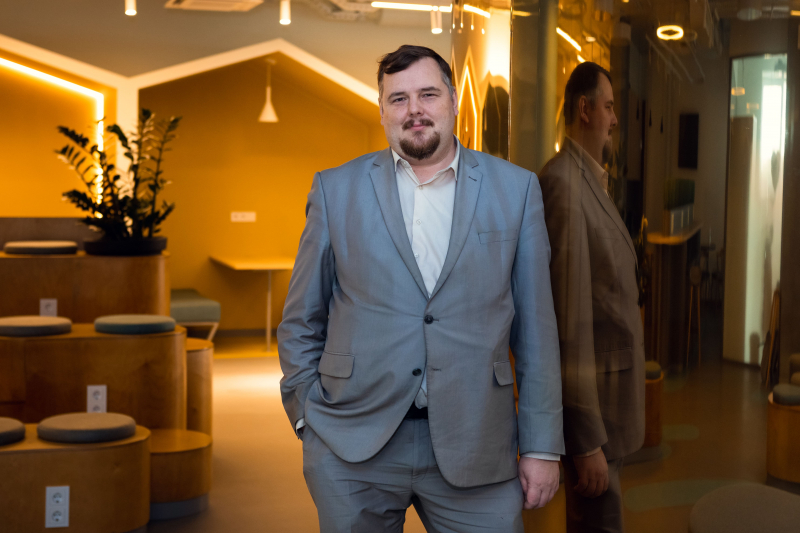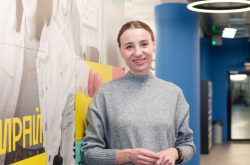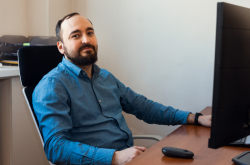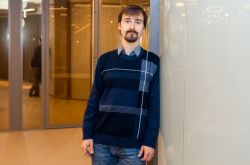What do you do at ITMO apart from teaching?
At ITMO, I do a lot of administrative work and sometimes venture into science. I also teach Operating Systems, LINUX Systems Administration, Databases, and several other courses. I am deputy dean of the faculty, but in this role I am mostly responsible for international activities, such as academic mobility and joint educational programs. I also take part in decision-making on administrative issues with other members of the team.
Moreover, I have a PhD in pedagogy, so I participate in various projects for developing education at the university, including those on remote learning. For over ten years, I’ve been teaching IT to school-aged students; I also compile the methodology for contests in this field and help students prepare for such contests. Right after graduating from school, I started teaching IT classes at St. Pete’s City Palace of Youth Creativity; these evolved into classes for school students that I held at the university, and afterwards I became a teacher at school. Thanks to this experience, I am an expert in teaching informatics at school and a member of St. Petersburg’s Council on Educational Policy.
How is teaching at university different from that at school?
I work with high school students, who are only a couple of years younger than students at university – you wouldn’t think there has to be much of a difference between the two. There is, however, one main contrast in that students understand why they came to university, they are motivated to learn, and they already have some background. At school, I work with youngsters who haven’t yet decided what they want to do in life, they all have different abilities and talents. When I come to a class at school, I have to adapt to their complexity and heterogeneity, which is not the case at the university.
The approach at school is to expect students to come to a specific understanding, while at university we expect the students to voice their own opinions. Sometimes, it’s hard for me to switch between these two modes of teaching and I bring my teaching approach from university to school and vice versa. My students at ITMO are sometimes a bit puzzled, but are fascinated by this reminder of their school days.
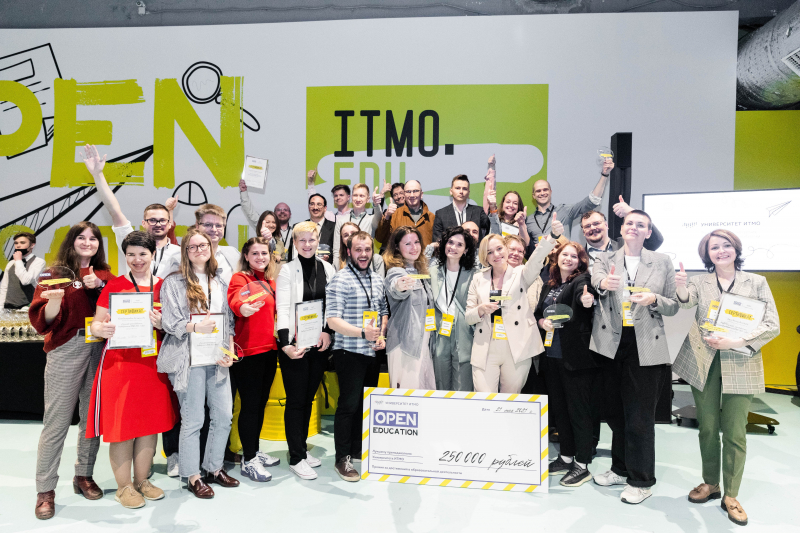
Winners of ITMO.EduStars at ITMO's Open Education conference. Photo by Maria Bakina, Megabyte Media
In 2005, you received your PhD in pedagogy after defending your thesis titled Organization of pre-professional training at vocational education institutions for high school students in the field of IT. At ITMO, you teach technical subjects. Would you describe yourself as more of an educator or an IT specialist?
I’ve been dangling between these two states my whole life and I am trying to reconcile them in myself. Quite early on, I realized that I like teaching and want to grow in this field. I see it as one filled with creative opportunities because there are no strict research methods. IT is naturally a rapidly developing field, but it’s very applied and kind of boring. Although I still conduct some small portion of research in the field of IT, too.
But I have always found teaching IT at school or at uni really interesting, so these topics coexist harmoniously for me: I either think of employing teaching methods to train students in IT or find ways to apply IT to make my classes more effective.
You’d had other awards before your win at ITMO.EduStars. For instance, in 2019 you received the St. Tatiana Badge of Honor for your educational activities and contributions to St. Petersburg’s social development. What do you think about awards and contests in the field of education?
Such awards help support my inner motivation and demonstrate that my values in teaching yield results. They also help strengthen my reputation, because when I come into a room full of students, they don’t evaluate only the way I can teach a course or grasp their attention, but also my regalia. That’s why I feel it makes a difference for my first impression on new students.
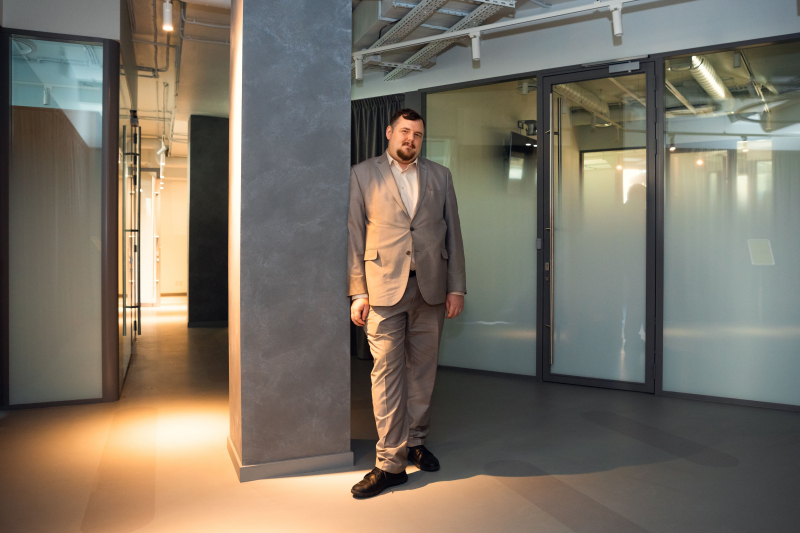
Alexander Mayatin. Photo by Dmitry Grigoryev, ITMO.NEWS
Do you have any rules and principles that guide your teaching activities?
At any given moment, students have to understand why they study your course. Most lecturers start by explaining the role of their subject in the learning process and try to motivate students, but actually that is not enough. A complex course is rich in facts and components – which lecturers learn to link over the years of teaching the same subject. Such links are not as evident for newcomers, so it’s very important to be in a constant dialogue with students, so that at any given time, even if they have skipped a lecture, they could see why a certain class is focused on this particular topic and how it can be connected to what came before and what will follow. Thanks to such connections, students acquire a depth of knowledge. That’s why systems thinking and being aware of where you are in the course are crucial in teaching.
One other obligatory but trivial rule is that a lecturer has to be 100% certain in their knowledge and keep it up-to-date. I have never held the same lecture twice in a row – the content changes from year to year. Not only can some new facts and examples come to light, but also I keep discovering new patterns and reinterpreting what I know about the subject. It gives me confidence that I know what I am talking about. Students won’t trust a lecturer who doesn’t understand what they’re talking about and uses set phrases from coursebooks.
Let’s talk about hobbies. I know that you are into music and especially those from Russian singer-songwriters. How long have you had this interest?
I discovered such “bard” songs back when I was myself a student at the City Palace of Creativity and went to summer camps. We went camping, where we sang popular Russian songs from local songwriters. I actually studied music too, I learned to play the piano, but I haven’t practiced for a while now. Thanks to this education and great pitch, I mastered the guitar easily and I still love to sing with my friends. We often play local singer-songwriter songs, too. I like this kind of music because each song has its own philosophy, feelings, and experiences. It’s not the type of music that inspires a whirlwind of emotions, but it’s more like food for the soul.
